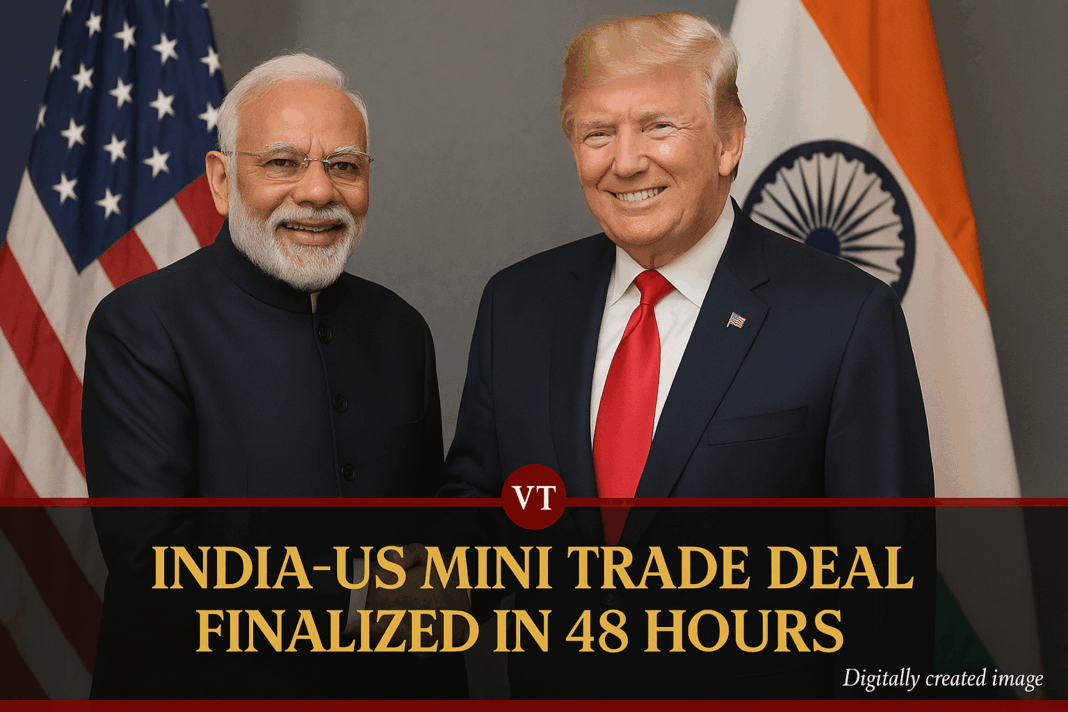- Mini trade deal expected to be finalized within 48 hours, per sources cited by CNBC-TV18
- Focus on tariff cuts for textiles, leather, pecans, and blueberries
- India refuses concessions on wheat, rice, maize, dairy, and GM crops
- Broader Bilateral Trade Agreement talks to start post-July 9
- Trump’s pending tariff hikes (10–70%) add pressure to seal early deals
Deal Nearing Completion
India and the United States are poised to finalize a “mini trade deal” within the next 48 hours, according to a report by CNBC-TV18. Sources indicate that the negotiations have concluded, with both governments aligning on the core terms aimed at boosting bilateral trade, particularly in labor-intensive sectors such as textiles and leather.
The proposed agreement will operate as an “early harvest” deal, featuring limited but targeted tariff reductions. For India, this means annual quotas for lower tariffs on key export products to the U.S., helping improve their price competitiveness.
Concessions with Limits
In exchange, India may agree to reduce import duties on a select set of U.S. agricultural goods—specifically pecan nuts and blueberries. However, Indian negotiators have firmly excluded sensitive commodities such as wheat, rice, maize, dairy, and genetically modified (GM) crops from the deal, prioritizing domestic food security and farmer protections.
Tariff Policy in Line with FTAs
India’s stance on automobile tariffs remains unchanged in the mini deal, consistent with its approach in broader free trade agreements. The average tariff rate under this limited pact is anticipated to hover around 10%, sources said.
Countdown to Broader Negotiations
While the mini trade agreement is nearly complete, both nations are preparing to engage in broader negotiations for a full Bilateral Trade Agreement (BTA) starting after July 9. This broader accord is expected to address structural and long-term trade issues, including digital services, investment rules, and broader tariff frameworks.
Trump’s Tariff Clock Ticking
Earlier this year, President Donald Trump introduced a 10% baseline tariff on nearly all imports but delayed steeper increases to allow space for talks. Those hikes—ranging from 10% to 70% depending on the country—are expected to take effect unless bilateral agreements like this one are secured in time.
A global media for the latest news, entertainment, music fashion, and more.














